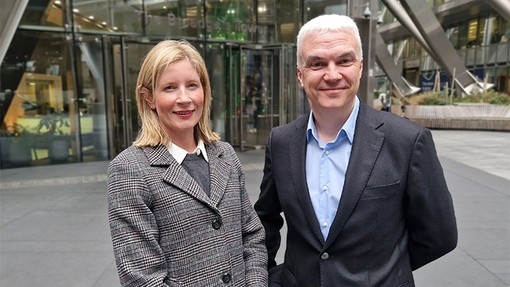Recent developments in crypto

Recent developments in crypto
Digital assets such as crypto-currencies and crypto-tokens are increasingly being used for an expanding variety of purposes. Thanks to their unique features such as decentralisation, (pseudo) anonymity, and sense of scarcity, crypto-assets are in some ways to be treated like ordinary assets and in other ways require different treatment.
The English courts have in the recent past confirmed the legal status of crypto-assets as ‘property’ in the cases of Robertson v Persons Unknown (unreported, CL-2019-000444) and A v Persons Unknown [2019] EWHC 3556 (Comm). More recently, the English High Court has had to deal with difficult questions of enforcement and recovery in two proprietary claims over cryptocurrencies.
Joseph Keen Shing Law v Persons Unknown & Huobi Global Limited [2023 WL 03483927 (2023)]
The first case involved Court’s consideration of the Claimant’s application for an order for delivery up of the crypto-assets held in two offshore crypto-currency accounts to the jurisdiction of England and Wales, in order to enforce judgments secured against those assets.
The application was made after the Claimant obtained a worldwide freezing injunction and subsequently default judgment against some of the Defendants, in relation to crypto-assets contained in two wallets maintained by the fourth defendant, operator of the crypto-currency exchange, Huobi.
The first three Defendants did not participate in the litigation and did not appear at the application hearing. Huobi, at all times cooperated with the Claimant and Court by maintaining the crypto-asset accounts and denying other Defendants access to the accounts.
In the circumstances, and where overwhelming evidence suggested that assets contained in the first crypto-wallet originated from fraud perpetrated against the Claimant, the Court had no difficulty in accepting the Claimant’s assertion of proprietary claim to those funds. The second wallet however held a much more significant amount of crypto-assets, and the funds deriving specifically from fraud against the Claimant were not as easily traceable. However, since the first three Defendants allegedly responsible for the fraud controlled it, and the Claimant obtained a default judgment in relation to the assets contained within, the judge finding that the Claimant would normally have an ability to enforce a monetary order, had the accounts been maintained in England.
The Court has also recognised that the cooperative position of Huobi could change, and that it had no control over all Defendants who were based outside of its jurisdiction.
As such, notwithstanding the worldwide freezing order in force, the Court granted the application, and ordered that the crypto-assets should be converted into cash and transferred to England and Wales by payment into the Court Funds Office, to enable the Claimant to apply for execution against the sums awarded.
Piroozzadeh v Persons Unknown 2023 EWHC 1024 (CH)
In the second case, the Court considered an application of Binance (a cryptocurrency exchange operator- one of eight Defendants in the proceedings) to discharge an interim proprietary injunction obtained against it by the Claimant on a without notice basis.
The Claimant’s crypto-assets were initially misappropriated and subsequently deposited with Binance. The Claimant wished to hold Binance liable as a constructive trustee.
Following the Claimant’s successful application for an interim proprietary injunction, various Defendants were restrained from dealing with the crypto-assets deposited, and the crypto-exchanges involved including Binance were ordered to safeguard the associated traceable proceeds.
Binance sought to challenge this ruling and argued that the Claimant had not discharged its disclosure duties at the initial hearing, and in its omission, failed to identify and explain Binance’s position of a bona fide purchaser of the crypto-assets as a potential defence. In simple terms, Binance alleged that the Claimant failed to explain the result of Binance’s depositing mechanism which includes ‘sweeping’. Sweeping is a step where all Binance’s users’ deposits are transferred into a one large wallet and become part of Binance’s general assets in exchange for an equivalent credit. As a result of the depositing mechanism, Binance becomes bona fide purchaser of the mentioned deposits, and unless it is put on notice of any fraud perpetrated in relation to them, it holds no proprietary rights which otherwise could be held by a beneficiary in such crypto assets (rendering the Claimant’s argument in relation to Binance’s liability as a constructive trustee useless).
The Court held that the Claimant had indeed not discharged its duties appropriately, and as such the injunction should not have been granted without notice in the first place. Binance succeeded in its application, and the injunction was discharged.
Key Takeaways
Since crypto services and activities are not yet heavily regulated, individuals and entities challenging exchanges and other crypto-market participants can expect difficulties with establishing and enforcing their proprietary rights, especially, where the structure of the investment ladder/pool is unclear and resulting traceability of crypto-assets challenging.
However, providing that an appropriate identification of claims and diligent execution of discharge of the Claimants’ litigation duties takes place, the Courts will tend to be prepared to assist the wronged Claimants.
The appropriateness of pursuing a litigation should always be considered on a case-by-case basis, however, the main factors that should be automatically examined are:
- The likelihood of opposing parties’ cooperativeness
- The need to disclose defences available to the opposing parties and appropriateness of the remedies sought, as well as associated practicalities
- Potential costs and the need for provision of a cross-undertaking in damages.
For further information on this topic please get in touch.





